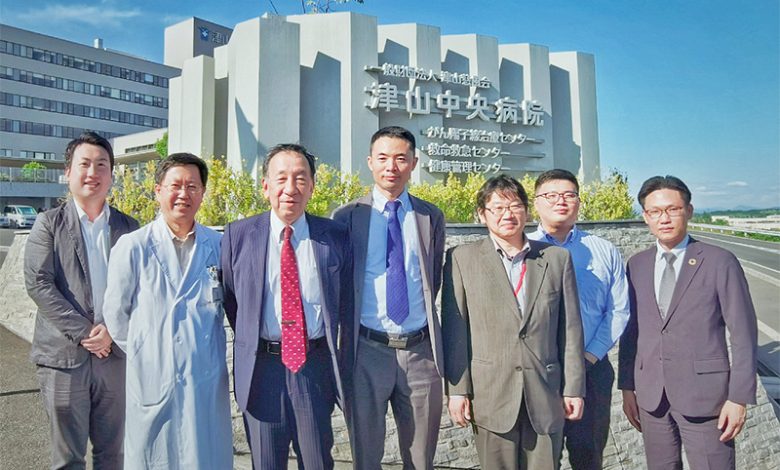Tsuyama Chuo Hospital Transforms Its Virtualisation Platform with Huawei DCS
Adoption of Huawei's Three-Tier Virtualisation Solution for Reliable and Efficient Healthcare Services

Huawei has announced that Tsuyama Chuo Hospital in Japan has adopted the former’s three-tier virtualisation solution to enhance its healthcare services and streamline operations.
Tsuyama Chuo Hospital is a general hospital in Tsuyama, Okayama, Japan dedicated to enhancing patient care and treatment options in the region. Recently, the hospital undertook a project to improve the quality and efficiency of its healthcare services, with the objective of transforming its virtualization platform. The hospital selected Huawei’s DCS solution, which provides the data infrastructure foundation needed to ensure the stability of the hospital’s service systems, such as its hospital information system (HIS) and picture archiving and communication system (PACS).
Quest for an Advanced Healthcare Virtualisation Solution
Tsuyama Chuo Hospital needed to improve its healthcare services and streamline its operations, so it sought a virtualisation solution that used state-of-the-art technologies. During deliberation by the hospital management, the following points were made:
- Comprehensive Solution. The solution needs to be comprehensive enough to support functions like service backup.
- Performance. The solution must satisfy the overall needs of the hospital.
- Efficient O&M. The solution needs to be able to resolve maintenance problems as quickly as possible.
- Proven Adoption. The solution provider needs to have a proven record of success with virtualization integration in Japan.
- Cost Effectiveness. The solution needs to be tailored to the budget and save costs.
Cooperation for Excellence
Huawei’s DCS solution meets the five key requirements mentioned above and offers two additional compelling benefits:
- The core virtualisation platform eSphere in this solution provides storage and switch redundancy, and independent storage is used for backup to achieve superior reliability and availability.
- Huawei works closely with channel partners to ensure rapid response to issues. Huawei offers a dedicated group chat service that significantly improves the efficiency of hospital operations.
Tsuyama Chuo Hospital praised Huawei’s technical capabilities and its comprehensive solution. In particular, a visit to a Huawei exhibition hall in Japan left a deep impression on hospital managers. Huawei’s DCS solution has improved the stability and efficiency of the hospital’s systems using cutting-edge technology.
The hospital also sought to address its concerns of rising virtualisation software prices, so they hoped to test Huawei’s solution with the aim of creating a more flexible and cost-effective virtualisation environment.
Huawei’s rapid response and technical expertise have won acclaim from the hospital:
- Huawei provides quick response to customer problems and real-time communication through a dedicated group chat service. This has accelerated problem resolution and significantly reduced service interruptions.
- The Huawei support team is always available to meet customer needs and resolve technical issues quickly. This has ensured the stability of the hospital’s systems.
These advantages of Huawei’s DCS solution led to Tsuyama Chuo Hospital’s decision to cooperate with Huawei.
Elevating Future Healthcare Services with Huawei
Through the transformation of its virtualisation platform, Tsuyama Chuo Hospital has significantly improved its operational efficiency and healthcare services. Huawei’s DCS solution offers excellent reliability, availability, and cost effectiveness. It will continue to make significant contributions to local healthcare industry. This partnership between Tsuyama Chuo Hospital and Huawei will help pave the way for future healthcare solutions that transform hospital operations to enable better patient care.




